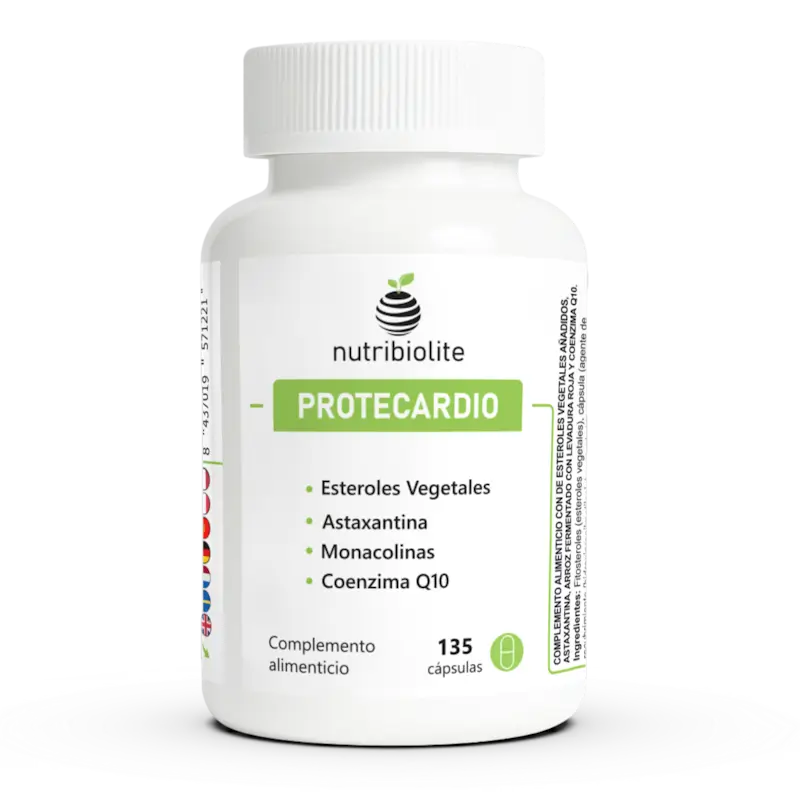A study in Pharmaceuticals (Basel, Switzerland) published in 2025 looked at whether astaxanthin, an antioxidant carotenoid, helps with weight control in adults. The researchers reviewed nine clinical trials of oral astaxanthin supplementation and concluded that there was no significant change in body mass index or body weight versus placebo. The practical message is clear, astaxanthin is not an effective weight loss tool, although there is continuing interest in its role in metabolic and cardiovascular health.
For adults concerned about weight and metabolism, this result invites an adjustment of expectations. Astaxanthin shows interesting effects on visceral fat, inflammation and muscle function in basic studies, but human trials do not support its use as a weight loss strategy. Its role seems to fit better as antioxidant support within a broad cardiometabolic health approach.
What the astaxanthin study did and what they actually found
The work was a systematic review with meta-analysis, i.e. it pooled and analysed already published clinical trials. It included nine studies in adults, with oral doses of astaxanthin between 6 and 20 milligrams a day, for about eight to 12 weeks. They were always compared with placebo and measured changes in body weight and body mass index, which relates weight to height.
When the data were combined, the changes were small and statistically non-significant. Neither weight nor body mass index changed consistently with astaxanthin. There was also no clear dose-effect relationship, so using more did not translate into better weight control results.
The authors also point to significant heterogeneity between studies, with different populations and relatively short durations. This limits the conclusions, but even so the overall pattern is stable, astaxanthin does not stand out as a useful tool for weight loss in humans in the context of these trials.
How astaxanthin acts in the body and why it matters for cardiometabolic health
Although the meta-analysis showed no slimming effect, astaxanthin remains physiologically relevant. It is a fat-soluble carotenoid that is absorbed along with dietary fats, transported in lipoproteins such as LDL and HDL and accumulates in tissues with high metabolic activity, e.g. liver, heart and muscle.
In cell and animal models, astaxanthin has been shown to reduce oxidative stress, modulate inflammation and improve mitochondrial function. In adipose tissue it is associated with reduced differentiation of new adipocytes and with a finer regulation of lipogenesis, the fat-making process. In skeletal muscle it is associated with improved fatty acid oxidation and less lipotoxicity, which is the harmful accumulation of fat within the muscle fibre.
These effects do not translate, at least at the doses and times studied, into significant weight reduction. However, they fit with a metabolic protection approach, where the amount of fat matters as much as its behaviour, its inflammation and its impact on long-term cardiovascular health.
Metabolism-supportive lifestyle habits beyond weight loss
The message of the study is that you should not rely on a single nutrient for weight loss. The basis of weight control remains a diet tailored to energy needs, with a focus on vegetables, fruit, legumes, whole grains and quality fats such as olive oil and nuts.
Regular physical activity is another pillar. Moderate aerobic exercise and strength work help preserve muscle mass, improve insulin sensitivity and promote a more balanced lipid profile. Even without major changes on the scale, these adjustments translate into lower cardiometabolic risk.
Adequate rest and stress management also count. Little or irregular sleep and living with chronic stress are associated with increased hunger, poorer food choices and alterations in appetite-regulating hormones. In this context, supplements only make sense as a complement to an already well-maintained routine.
How Nutribiolite’s PROTECARDIO targets overall cardiovascular support
Although the study focused on astaxanthin and body weight, many current formulations include it with its antioxidant role and its relationship to cardiometabolic health in mind. Nutribiolite’s PROTECARDIO falls into this category, targeting physiological support of fat metabolism and cardiovascular function by integrating astaxanthin into a broader approach.
Rather than relying on a single ingredient, PROTECARDIO combines several compounds relevant to blood lipid balance and protection against oxidative damage, including astaxanthin. Recent meta-analysis reinforces that it should not be presented as a slimming agent, but as part of a strategy that prioritises lipid profile quality, cell membrane stability and modulation of low-grade inflammation.
This type of formulation makes sense for adults who already take care of their diet and physical activity and are looking for additional physiological support for their cardiovascular health. Astaxanthin provides antioxidant capacity and affinity for key tissues, while the other ingredients in PROTECARDIO target complementary fat metabolism pathways.

PROTECARDIO is intended for adults who wish to physiologically support their lipid profile and cardiovascular health as part of a healthy lifestyle.
What can we learn from the study and the PROTECARDIO approach?
The meta-analysis on astaxanthin shows that a single nutrient, even with interesting antioxidant properties, is not sufficient to control weight in humans. However, the underlying physiology, including oxidative stress, inflammation and mitochondrial function, remains key to cardiometabolic health.
Formulations such as PROTECARDIO build on that physiology, integrating astaxanthin into a suite of ingredients that target blood lipid balance and vascular protection. All within a lifestyle that prioritises a balanced diet, regular movement and adequate rest.
This content is for information only and does not replace the advice of a health professional.
Frequently asked questions
Astaxanthin for weight loss according to recent study
The meta-analysis reviewed nine clinical trials in adults and found no significant reductions in weight or body mass index with astaxanthin versus placebo. Its focus is on aspects of metabolic and cardiovascular protection rather than direct weight loss.
What role can astaxanthin play in cardiovascular health?
Astaxanthin is a fat-soluble antioxidant that is integrated into lipoproteins and cell membranes. In basic studies, it is associated with reduced oxidative stress, improved mitochondrial function and modulation of inflammation, which are relevant to the heart and blood vessels, although more specific clinical trials are still needed.
How PROTECARDIO fits into the context of the study
The study shows that astaxanthin is not effective for weight loss, but it does reinforce its role as a metabolic support. PROTECARDIO uses astaxanthin as part of a broader formula aimed at lipid balance and cardiovascular support, not as a slimming product.
Who a supplement like PROTECARDIO might make sense for
PROTECARDIO may be of interest to adults who already take care of their diet, physical activity and rest, and who want additional support for their blood fat profile and cardiovascular health from a physiological, non-pharmacological approach.
Where do supplements fit in with lifestyle habits?
Supplements act as a complement, not a substitute for a balanced diet, regular exercise and adequate rest. The astaxanthin study is a reminder that the basis of weight management and cardiometabolic health remains lifestyle, and that supplements should be integrated into that overall strategy.
















